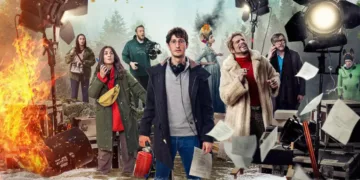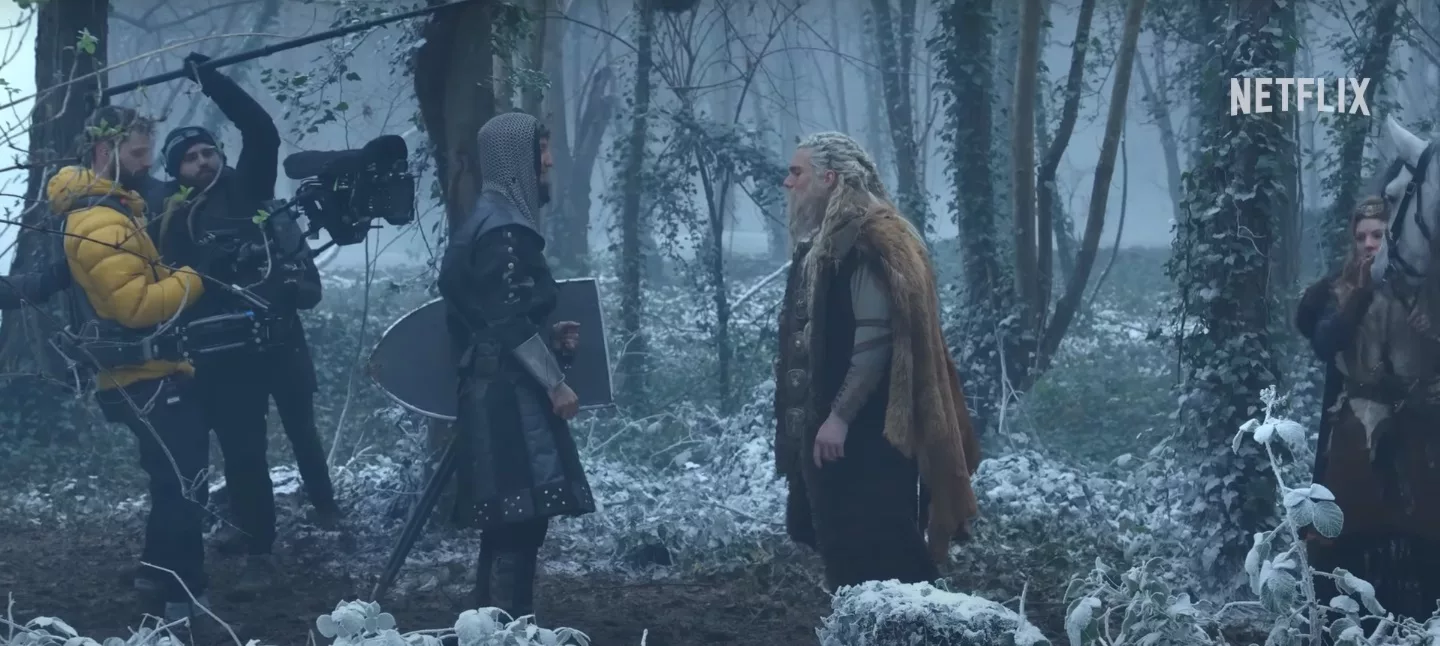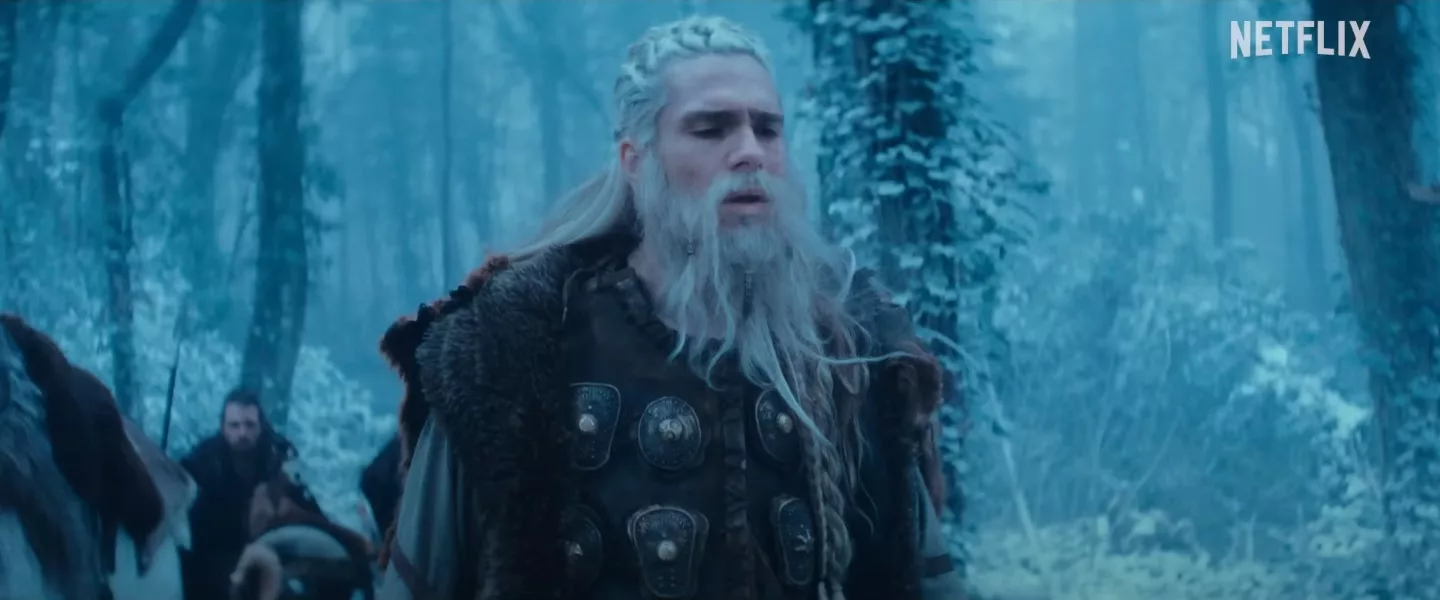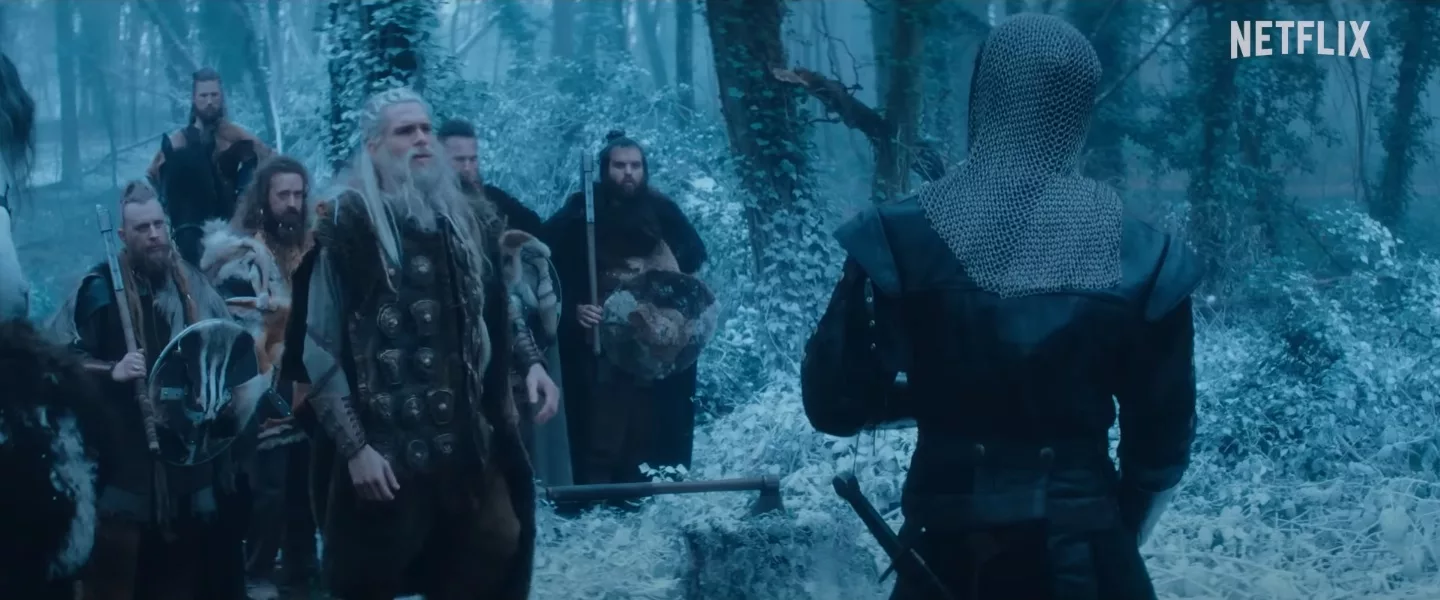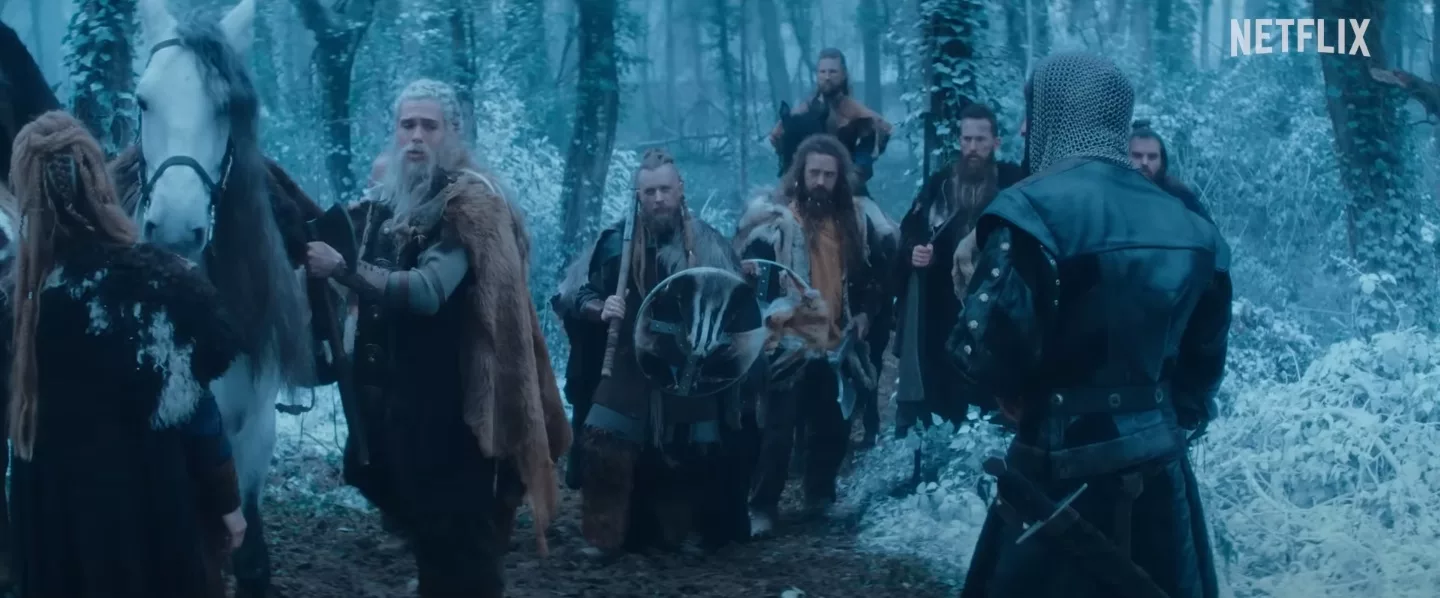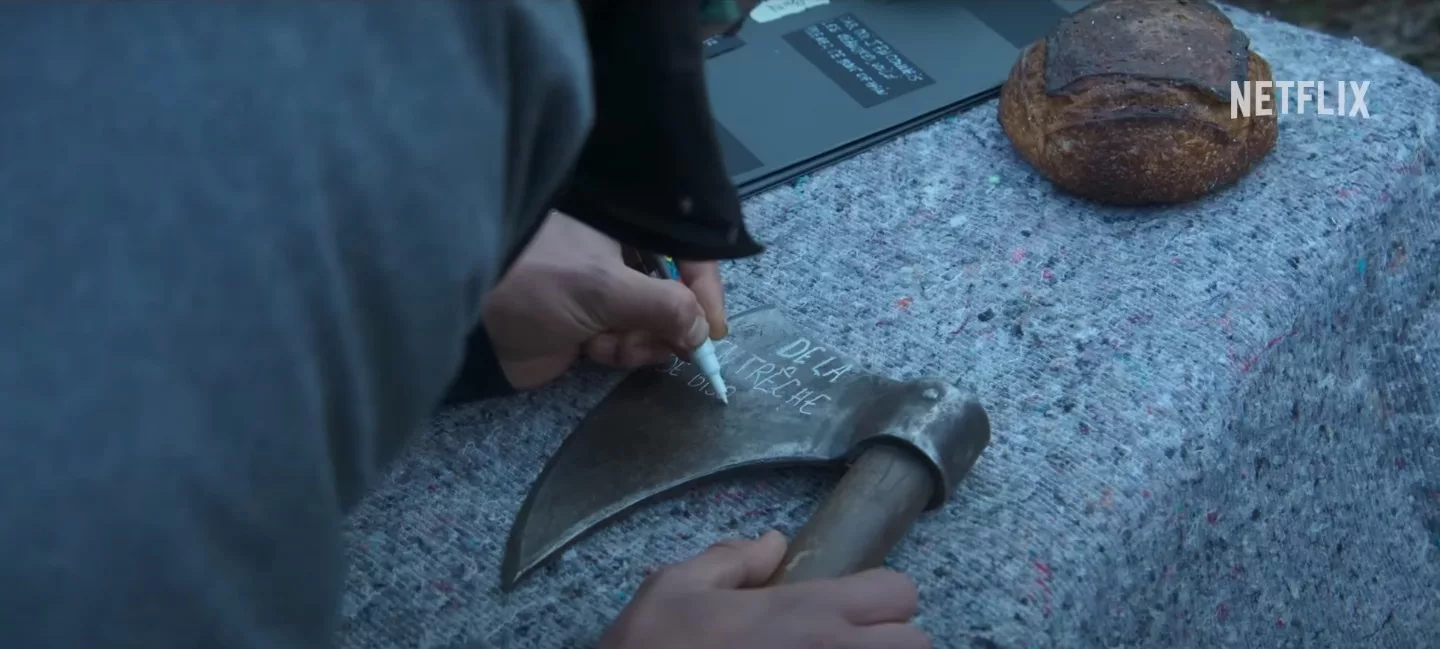Raphael Valande is an ambitious young filmmaker with his heart set on directing an epic historical drama about his grandmother’s contributions to the French resistance. Securing finance and top talent like Vincent Cassel and Geraldine Nakache, things seem poised for success. But first-time director Raphael proves ill-equipped to handle the pressures of the Hollywood machine.
The creative team of Igor Gotesman and Pierre Niney weave Raphael’s tumultuous production struggles into a mockumentary format, pulling back the curtain on the lively chaos unfolding both in front and behind the camera. As mishaps ranging from diva tantrums to food poisoning plague the set, Raphael finds his inexperience and lack of leadership ability constantly undermining the shoot.
With Raphael’s growing frustrations paired with some suspiciously well-timed calamities, suspicion mounts that a saboteur may be at work on the inside. But is there really a mole determined to see Raphael’s dream project go down in flames? And what drove Raphael to take on a job clearly beyond his abilities?
This peek behind the movie magic offers laughs as escapades go wrong in expectedly unexpected ways. Yet it also provides thoughtful commentary on the difficulties of bringing artistic vision to life and establishing authority in a collaborative industry where egos often clash. So pour some popcorn, dim the lights and prepare to witness the entertaining ups and downs of getting a film off the ground.
Getting Lost in the Chaos of Filmmaking
At the center of Fiasco is Raphael Valande, an ambitious young filmmaker driven by passion but lacking in experience. Raphael has written a historical drama based on his grandmother’s heroic actions in the French Resistance. Securing funding and big names like Vincent Cassel to sign on, things seem aligned for success.
But as filming gets underway, it quickly becomes clear Raphael isn’t cut out for the director’s chair. Timid and unsure of himself, he struggles to assert authority on set. Actors walk all over Raphael, questioning his every decision. Without a steely resolve, the production spirals out of control. Mishaps ranging from diva tantrums to stunt accidents plague the shoot.
A mysterious saboteur also emerges, secretly working to undermine Raphael. When a humiliating video of Raphael’s botched speech leaks, gossip and rumors spread, threatening to drag the filmmaker’s reputation through the mud. As more calamities are manufactured on and off set, suspicion falls on Raphael’s associates. But who stands to gain from seeing his dream project go up in flames?
Amidst the intensifying chaos, Raphael finds himself increasingly lost, insecure and overwhelmed. But he refuses to give up on his vision, even if it destroys him in the process. Through it all, two producers – Jean-Marc and Magalie – remain Raphael’s only advocates, doing their best to support and protect him from the mounting pressures.
It’s this unwavering faith in Raphael that keeps audiences invested in his journey, though he often frustrates as much as he endears. Despite strong talent behind the camera, it’s unclear if Raphael truly has what it takes to survive the film world. As mistakes and misfortunes accumulate, viewers can’t look away from Raphael’s on-going struggle to retain control over the fiery chain of events he unwittingly set in motion.
By peeling back the curtain on a production in turmoil, Fiasco takes audiences on a hilarious yet harrowing ride alongside Raphael. Though his weaknesses often undermine the story, there is an unrelenting charm to Raphael’s dreamy determination that persists through all the fiascos.
Behind the Scenes of a Fiasco
From the intricate period sets to the seamless camerawork, Fiasco transports viewers straight to the chaotic film shoot at its center. Stepping onto the bustling studio lot, one is struck by the lavish details brought to life across each corner of the production.
No expense seems spared in crafting an authentic world for Raphael’s ambitious historical drama. Grand halls and cramped cottages alike feel fully realized down to the last prop. Subtle touches like weathered textures and handmade furnishings give a lived-in feel. It’s easy to get swept up in the stunning vistas captured on location too.
This level of intricate production design draws you deeper into the narrative. As challenges multiply for the stranded crew, the lush surroundings make their struggles in the setting feel all the more real. The expansive sets become another character, heightening each new crisis.
Behind the camera as well, the crew’s expertise is evident. Fluid tracking shots follow frantic figures across stages with ease. Close-ups intimately convey emotional beats during frazzled conversations. Seamless transitions whisk viewers around the sprawling lot to keep pace with the action.
Most striking is how the documentary framework enhances immersion. Peering over the shoulders of the film crew lends voyeuristic thrill. One wonders what unexpected drama each new interview may expose. This adds authentic tension to see how confessional clips piece together the spiraling movie shoot like a real exposé.
Through its breathtaking production qualities, Fiasco pulls back the curtain on filmmaking at its most ambitious. For any viewer considering their own foray behind the scenes, this innovative series will leave them with appreciation for all that unseen artistry required to realize even the most fiasco-prone of productions.
Navigating Laughter and Heart
Fiasco deftly balances moments of hilarious absurdity with scenes of genuine pathos. Gotesman and Niney show a knack for crafting cringe-worthy situations that elicit belly laughs one moment before tugging at the heartstrings the next. They explore the intrinsic connection between comedy and emotion.
Much of the humor stems from Raphael’s utter incompetence and childlike naivety. Try as he might, every effort to assert himself or gain respect from his cast and crew spirals into farcical misfires. But beneath the bumbling exterior lies a soul yearning to honor his grandmother through film. When struggles threaten to derail his dream, one feels for Raphael’s plight rather than judgment at his folly.
Comedic timing and exaggeration are in full effect. From a disastrous motivational speech to a bounty of on-set calamities, absurd twists are spun from the mercurial circumstances of production. But real filmmaking challenges also shine through, conveying camaraderie under pressure.
Balancing these elements is a delicate act, and sometimes the pendulum sways too far toward whimsy or mystery at the cost of commentary. But at their best, comedic beats arise organically from character quirks interacting with an authentic backdrop. The crew’s mass diarrhea outbreak illustrates both the hilarity and horror of showbusiness demands.
Above all, the performances resonate due to nuanced humanity. Raphael’s longing for purpose amid rejection, the producer’s steadfast support of a friend’s dream – these grounds the laughs in recognizable hopes. By viewing mockumentary through a lens of feeling rather than exploiting emotion, Fiasco locates inherent comedy in the shared experiences of creating something from nothing against all odds.
In the end, the journey matters more than resolving riddles or critiquing genres. By bringing viewers alongside on a willfully bizarre yet heartfelt adventure, Fiasco proves comedy most succeeds when it sees the laughter and tears in all of us.
Bringing the Characters to Life
Pierre Niney absolutely shines as the hapless director Raphael. From his unsteady first steps on set to flailing in the face of disaster, Niney perfectly captures Raphael’s uncomfortable mix of passion and ineptitude. You can’t help but feel for the guy as he bumbles from one mishap to the next. Yet Niney also shows the heart and humanity beneath the nerves, whether in quieter moments of grief or dogged determination to see his vision realized. It’s a nuanced, fully-rounded turn that rightly anchors the series.
Proving the perfect foil is Pascal Demolon as producer Jean-Marc. Where Raphael flounders, Jean-Marc stands firm – yet the care and concern for his friend remains clear. Their scenes together crackle with superb comedic timing, but Jean-Marc also brings warmth and wisdom to balance Raphael’s follies. Likewise, Geraldine Nakache is outstanding as Raphael’s much-needed rock Magalie. She effortlessly switches between supporting her boss and taking astute jabs at his absurd antics.
Vincent Cassel is wonderfully bombastic in his brief but memorable role as cantankerous star Robin. And François Civil absolutely runs away with his later scenes, imbuing method actor Tom with swoonworthy sincerity and lunacy in equal measure. Equal praise goes to delightful turns from Marie-Christine Barrault as the no-nonsense grandmother and Juliette Gasquet’s charmingly hapless intern Gabrielle.
But this ensemble truly shines as an ensemble. Whether cranking up the comedic hijinks or delivering more emotional beats, the cast works in perfect lockstep. Their palpable bonds feel authentic, grounding even the most outlandish moments. From big stars to those in smaller roles, all bring infectious glee and heart to their characters. It’s no surprise audiences become so invested in the cast’s zany antics and root for Raphael’s dream against the odds. With performances like these, Fiasco truly is a series to remember its wonderful characters by.
An Inside Look at the Filmmaking Process
Fiasco offers a truly unique perspective on the filmmaking process. Rather than simply watching the finished movie, we get to witness all the chaos that unfolds on set. Through Raphael’s experiences, we see just how difficult it is to bring a film to life. There are so many moving parts – managing the crew, obstacles to overcome, and egos to deal with. It can be a real juggling act.
I appreciate how the series sheds light on aspects of production that viewers rarely consider. We tend to think only of what’s on screen, without thinking about everything that happens behind the scenes. But it’s fascinating to learn about all the intricacies, from navigating the schedule to dealing with unexpected issues. It really shows why directing can be such a challenge. You have to be prepared for anything to go wrong at any moment.
At the same time, Fiasco presents it all in a very fun, entertaining way. You’re left laughing at Raphael’s misadventures but also coming away with a new understanding. It does an great job of educating viewers without ever feeling like a lecture. By the end, I felt like I’d learned something about the filmmaking process while thoroughly enjoying the wild ride getting there. Even seasoned movie buffs might pick up a thing or two. Overall, it offers a uniquely engaging glimpse into the business that we don’t often see.
Fiasco’s Footprint and the Future of Mockumentaries
There’s no doubt that Fiasco leaves an impression with its hilarious antics and insightful peek behind the movie magic curtains. Pierre Niney and crew deliver non-stop laughs as their hapless director endures one fiasco after another. At the same time, the series shines a light on filmmaking realities rarely seen. From navigating temperamental stars to handling unexpected crises, we get a true sense of what it takes.
However, the limited format does constrain Fiasco’s impact somewhat. With its story fully wrapped up in just seven episodes, the series doesn’t have the longevity of shows that develop over multiple seasons. In the age of constant streaming, short-form content risks getting lost in the shuffle more quickly. Despite the talent involved, one miniseries alone can’t revive an entire genre.
Yet Fiasco still rises above as a very enjoyable standalone piece of entertainment. Even if it doesn’t start a new trend, the mockumentary form remains in very capable hands. And who knows, maybe this series will inspire someone to push the boundaries even farther. Whether or not Fiasco singlehandedly makes waves, it deserves applause for the laughs, heart and behind-the-scenes scrutiny it brings.
At the end of the day, this madcap movie-making romp is simply a joy to watch. The stellar acting and detailed production shine in every scene. While the constraints of its format limited broader influence, Fiasco makes the most of its spotlight to deliver big smiles. For that, it deserves recognition and appreciation from all lovers of comedy.
The Review
Fiasco
While Fiasco may not save the mockumentary genre alone, it excels as a hilarious package of cinematic satire. Players Niney, Cassel, and company light up the screen with charm and versatility as their film production spins delightfully out of control. Witty observations and clever pratfalls keep viewers thoroughly entertained from start to finish. Though short-lived, this series makes the most of limited airtime to offer belly laughs and glimpses behind the movie magic curtain. All in all, Fiasco proves an immensely enjoyable ride that earns its place on streaming lineups.
PROS
- Hilarious comedic performances and impeccable timing
- Sharp satire of the filmmaking process and the characters involved
- Clever subversion of the mockumentary format
- Engrossing behind-the-scenes glimpses rarely seen
CONS
- Predictable ending fails to take full advantage of mystery plot
- Subplots involving other characters could have been further developed
- Limited episode count hinders broader cultural impact
